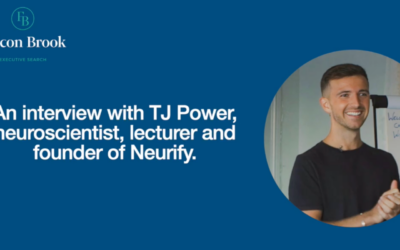Since 2019, Jeroen Strating has been responsible for developing ExxonMobil’s Budapest operations into a fast-growing global business centre that drives efficiencies, performance and innovation.
We caught up with Jeroen to discuss workplace culture and leadership as employees continue to re-evaluate the purpose of work in their lives, transforming the basis for talent attraction and retention.
FBS: ExxonMobil operations in Budapest have grown rapidly since you joined in 2019 to a thriving hub with 2000 employees. What’s driving this success?
Jeroen: We are a global commercial hub for the business, interacting with almost every aspect of operations. We started providing the traditional ‘back office’ functions and then it evolved as we use analytics and econometrics to drive innovation and best practices. We have managed to expand our operations through the creation of high value added senior positions which provide excellent career opportunities to our employees. Geographically, Hungary has many advantages. It’s in Europe, which is easily accessible to the Middle and Far East and Africa plus as a time zone we overlap with Australia and North America. It means we are always in touch.
FBS: How does the location affect your ability to attract top talent to the business?
Jeroen: That’s a plus also. We recruit economists, engineers, technology specialists, and accountants. Hungary offers a strong international talent pool with a high level of education. Energy companies need to be ahead of the curve. We’re competing for the same talent as banks, financial services, technology and pharmaceuticals for those wider skills – digital, programming, artificial intelligence. Twenty years ago, the focus was sector knowledge. That’s all changed now.
FBS: What do you think is the priority for attracting experienced senior level candidates now?
Jeroen: Many people are looking for a particular type of working culture. They’re asking, what sort of company do I want to work for? I think they question our values as an employer as much as career path and job opportunities. Plus, unemployment is very low in Budapest. The transferable skills we want means people are more easily able to move to another sector to find the right fit for their aspirations.
Our average employee is 34 years old: this is a key life moment. Our gender balance is 47/53 and higher for women in our upstream business. Experienced employees join us at a time when they’re thinking about starting a family, owning a house, progressing with their life goals. They are experienced and confident, and they are shifting the balance of choice in the workplace. What do I want in life? Work is only part of their identity.
FBS: What are some of the ways that ExxonMobil has adapted to this changing agenda?
Jeroen: An engaged workforce starts with happy people, and well-being is a pre-requisite for high performance. We give our people a lot of freedom to find their own personal work/life balance, while continuing to offer challenging assignments to develop as individuals. Today that means a certain freedom to choose what flexibility looks like to them, from a range of options: to take personal time off, a sabbatical, or to switch to part-time.
FBS: How do you measure the impact of being “family friendly” as a business driven by data and analytics?
Jeroen: Being family friendly is an investment however not the one where we would be able to calculate upfront an NPV or rate of return. Our approach will yield tremendous return in engagement and commitment of our employees and that has immediate impact on productivity.
We have almost 100 women on parental leave right now, and we employ a full-time family advisor. Many will initially return in part-time or require other ways of flexibility. Being “family friendly” means we make this work even if not always the most convenient for us as employer. But is not only about parental leave returners. We have 120 people working part time and numerous others on short leave of absence. Defining family friendly very broadly is a way of increasing employee choice.
FBS: How is the business adapting to working from home and hybrid working?
Jeroen: It’s about balance. Face to face collaboration generates a sense of belonging and commitment. It has a value in terms of output. We kept our offices open to facilitate this and at the same time we let people choose if they wanted to come into the office during each peak wave. I think we are still learning what is the best approach, but the need for being together will remain.
Supporting employees is essential, especially given the mental health crisis in society. The pandemic created a general anxiety. A young workforce working from home in smaller rented properties can feel lonely. As managers we need to support this. If you see an employee having lunch on their own or looking stressed in the office you can do something about it. You don’t see it when people work remotely, so we’ve had to introduce measures to make sure that we identify people who may need help.
New joiners are another major consideration: we created 300 new positions and hired 500 individuals during 2021. How do these people become part of our community? Keeping offices open meant they can build relationships with supervisors, work buddies and their teams.
FBS: How do you see the future workplace evolving?
Jeroen: I think we will move to a more individualistic model, adapting to personal needs and tailored to individual employees, who may need different types of flexibility throughout the year to care for children and aging family members.
We need to consider: how should I behave as a leader when everyone is on a different work schedule and working somewhere different? Right now, our industry needs to harness its collective knowledge to tackle the energy transition where collaboration is important. We need to balance flexibility while creating moments when people can work together in a safe environment.
Flexibility works in two ways. There are moments when as an employer we need to say when physical presence is important.
FBS: How can you ensure productivity with total flexibility?
Jeroen: The shift is to focus on outcomes. We start with trust. If you don’t trust your people, then you shouldn’t hire them. If you hire the best and the most talented, you can’t treat them like five-year-olds. That’s a disqualification of your hiring process.
Leadership is something you need to work at daily. It’s based on the same few ingredients like a recipe: you need to inspire, lead by example, bring clarity and accountability and set high standards.
Great leaders start to experiment and play with these ingredients daily to drive business results. Some days you need more empathy, especially in the last two years. A decentralised team means also a strong focus on standards. It’s a daily practice, always returning to the same ingredients. Employees see that and they value it. Everyone appreciates leaders who make an effort.
FBS: Jeroen, thank you so much for your time and your insights.



